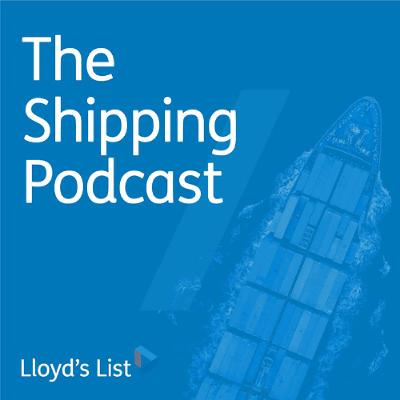The Lloyd’s List Podcast: Why shipping should be training for an ultra marathon
Update: 2024-10-04
Description
This episode of the Lloyd's List Podcast was brought to you by Veson. Visit https://veson.com/decision-advantage/ for more information.
There is a very detailed series of policy discussions happening right now inside the walls of the International Maritime Organization.
The question of whether the IMO can stick to its timetable and agree the basic architecture of shipping’s energy transition via a fuel standard and some kind of levy is of course important. It’s important in terms of demand signals to fuels producers, regulatory certainty for an industry in limbo, but it’s also going to determine whether we continue to have global regulation for shipping.
If what the IMO agrees is not ambitious enough, shipping still faces the likely proliferation of national and regional bloc legislations to come.
But what gets agreed inside the Marine Environment Protection Committee, is not the final step of shipping’s decarbonisation journey. It’s not even the starter.
There’s a long list of practical and political factors for shipping to consider beyond an IMO discussion, and the industry needs to be preparing itself for a gruelling series of changes over several years.
The bigger picture is that shipping is still not yet fully on the radar of the wider energy transition discussions like the Global African Hydrogen Summit that took place in Namibia last month.
There are still a lot of dots to be joined between government, ports, fuel suppliers and shipping as one of many industries in the queue for green fuels.
The industry is entering a phase that requires different approaches to its understanding of fuels supply and procurement and the coming regulation.
The cliché “it’s a marathon not a sprint” is overused.
But shipping is facing a decarbonisation ultra-marathon, and it needs to start training now.
There is a very detailed series of policy discussions happening right now inside the walls of the International Maritime Organization.
The question of whether the IMO can stick to its timetable and agree the basic architecture of shipping’s energy transition via a fuel standard and some kind of levy is of course important. It’s important in terms of demand signals to fuels producers, regulatory certainty for an industry in limbo, but it’s also going to determine whether we continue to have global regulation for shipping.
If what the IMO agrees is not ambitious enough, shipping still faces the likely proliferation of national and regional bloc legislations to come.
But what gets agreed inside the Marine Environment Protection Committee, is not the final step of shipping’s decarbonisation journey. It’s not even the starter.
There’s a long list of practical and political factors for shipping to consider beyond an IMO discussion, and the industry needs to be preparing itself for a gruelling series of changes over several years.
The bigger picture is that shipping is still not yet fully on the radar of the wider energy transition discussions like the Global African Hydrogen Summit that took place in Namibia last month.
There are still a lot of dots to be joined between government, ports, fuel suppliers and shipping as one of many industries in the queue for green fuels.
The industry is entering a phase that requires different approaches to its understanding of fuels supply and procurement and the coming regulation.
The cliché “it’s a marathon not a sprint” is overused.
But shipping is facing a decarbonisation ultra-marathon, and it needs to start training now.
Comments
In Channel










